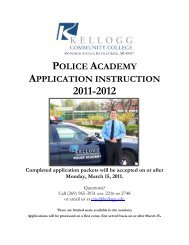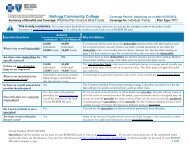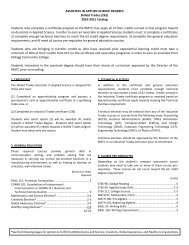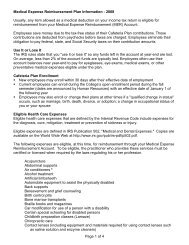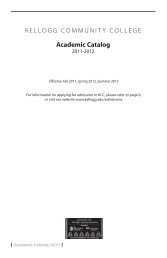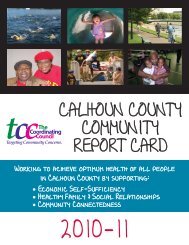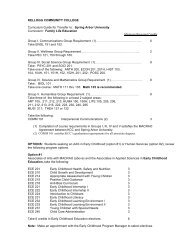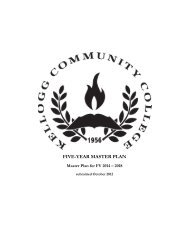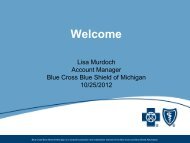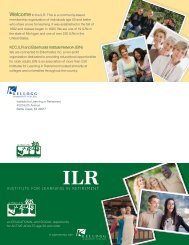Kellogg community college nursing student handbook
Kellogg community college nursing student handbook
Kellogg community college nursing student handbook
You also want an ePaper? Increase the reach of your titles
YUMPU automatically turns print PDFs into web optimized ePapers that Google loves.
individuals that they interact with. Students are expected to attend class prepared and with an<br />
open, professional attitude that fosters learning.<br />
A <strong>student</strong> may receive a failing grade in the theory, lab or clinical portion of a <strong>nursing</strong> course<br />
related to a single incident of a serious violation of the Nurse Practice Act; actual or potential<br />
unsafe practice; unprofessional behavior including violent, aggressive, disruptive, or grossly<br />
inappropriate behavior. Examples include but are not limited to inappropriate or disrespectful<br />
remarks to patients, clinical site staff, KCC faculty/staff/administration; angry outbursts in any<br />
course location; dishonesty in word, deed or documentation; use of threats or intimidating<br />
behavior; being under the influence of alcohol, illegal drugs or controlled substances while in the<br />
class, lab or clinical site; carrying a weapon while on KCC property or any clinical site; sexual<br />
harassment.<br />
If a <strong>student</strong> failed a course related to a single critical incident, he/she may or may not be<br />
considered for readmission to the Nursing Programs, depending on the severity of the incident.<br />
(See Readmission Policy)<br />
Code of Clinical Conduct<br />
Should a <strong>student</strong> have a personal illness or emergency that requires him/her to leave the clinical<br />
site, the <strong>student</strong> must first inform the Clinical Instructor and clinical site staff so that the care of<br />
the assigned client may continue.<br />
Nursing <strong>student</strong>s at KCC are accountable for adhering to the Code of Clinical Conduct. Behavior<br />
that violates the Code of Clinical Conduct includes, but is not limited to the following:<br />
Lack of responsibility and accountability to the client as demonstrated by --<br />
Failure to prepare for clinical experience.<br />
Falsification of client records.<br />
Failure to report omission or error.<br />
Dishonesty or purposeful misrepresentation.<br />
Fabrication related to client experiences.<br />
Failure to communicate client data.<br />
Sleeping at the clinical facility.<br />
Failure to report potential client abuse or neglect to the clinical instructor immediately.<br />
(See Organizational Chart for Nursing Students Policy)<br />
Providing <strong>nursing</strong> care in an unsafe or harmful manner as demonstrated by --<br />
Intentional causation of physical and/or mental harm to a client.<br />
Exhibition of careless or negligent behavior.<br />
Inability to assume the assigned and necessary care of a client, and failure to find<br />
alternative measures for that care to be delivered.<br />
Attending clinical un-rested, therefore jeopardizing safe client care.<br />
Failing to maintain client confidentiality as demonstrated by --<br />
Discussion of confidential information in inappropriate areas or with inappropriate<br />
individuals.<br />
Use of full name or position of client in written assignments.<br />
Reproduction of the client’s records.<br />
Failing to demonstrate professional/ethical behavior and attitude as demonstrated by –<br />
Cheating.<br />
Plagiarism.<br />
Lying.<br />
Stealing.<br />
Use of profane language.<br />
Page 21 of 46



